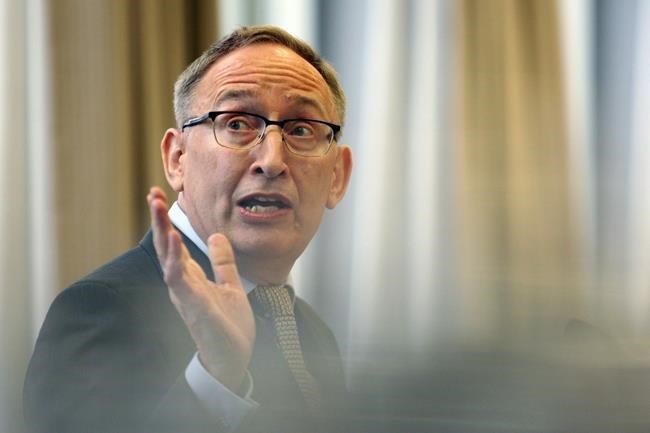Members of the Canadian Museums Association are calling for a special meeting to discuss the organization’s “crisis of leadership” after three board members resigned following a decision to keep former Royal B.C. Museum CEO Jack Lohman on as board president.
Lohman resigned from the Royal B.C. Museum in February after a diversity and inclusion consultant deemed the institution a “dysfunctional and toxic workplace, characterized by a culture of fear and distrust.”
Canadian Museums Association members are divided on whether Lohman should remain until the end of his mandate five weeks away, with some suggesting he should step down and others indicating they’d like him to stay on, said CMA executive director and CEO Vanda Vitali in a statement posted to the association’s website.
Vitali said the board did not ask Lohman to step down and that “the focus would be on a smooth transition to a new president in early May.”
Three board members left the board “following this decision,” she said. Margaret Chrumka, executive director of the Kamloops Art Gallery, Ken Ross, director of the Bank of Canada Museum, and Stephen Borys, director and CEO of the Winnipeg Art Gallery, confirmed their resignations but declined to comment on the reasons.
The association board is planning to expand to ensure greater diversity and representation, Vitali said. An annual general meeting is scheduled for May 3.
Vitali was not available for comment.
More than 50 members of the association have signed a letter expressing their concern for the future of the organization in light of the resignations and calling for a special meeting to discuss the organization’s future.
“We seek to understand what has caused these resignations, and how the CMA intends to address its crisis of leadership,” the petition says.
Museum professionals across the country have shared stories of the “toxic effect of colonial systems, racist legacies and gender inequality,” it says. “Our national professional association needs to demonstrate support for those hurt by unequal power structures and poor leadership.”
Victoria Dickenson, a fellow of the association who helped create the petition, said by email she’s delighted by the response of members, and a small group is now planning a special meeting to address governance issues and strategic directions for the association.
The resignations have left the association without a functioning board, because there are not enough members to have quorum, she said.
Martin Segger, a professor emeritus at the University of Victoria and a long-time member of the association, said members want better communication and transparency from the board.
“The association is not doing a good enough job of communicating with its membership,” he said. “Case in point: resignation of a number of members of the board in the last while, those three being just the latest, and there being really no explanation as to why or what the issue is.”
Lohman’s departure from the Royal B.C. Museum last month came as the institution undergoes a B.C. Public Service Agency investigation initiated after former head of the Indigenous collections and repatriation department Lucy Bell resigned in July, citing a culture of racism and discrimination.
Bell called out colleagues and executives, listing examples of racist comments directed at her during three and a half years at the museum, and said her experience reflected both systemic racism and racism at an individual level.
Bell said there’s “a reckoning” taking place in Canadian museums, and it’s time for the Canadian Museums Association to reflect on their values and actions. “Museums are being called out for their discrimination across the nation. This is an opportunity for the heritage sector to reflect and to do the right thing,” she said.



